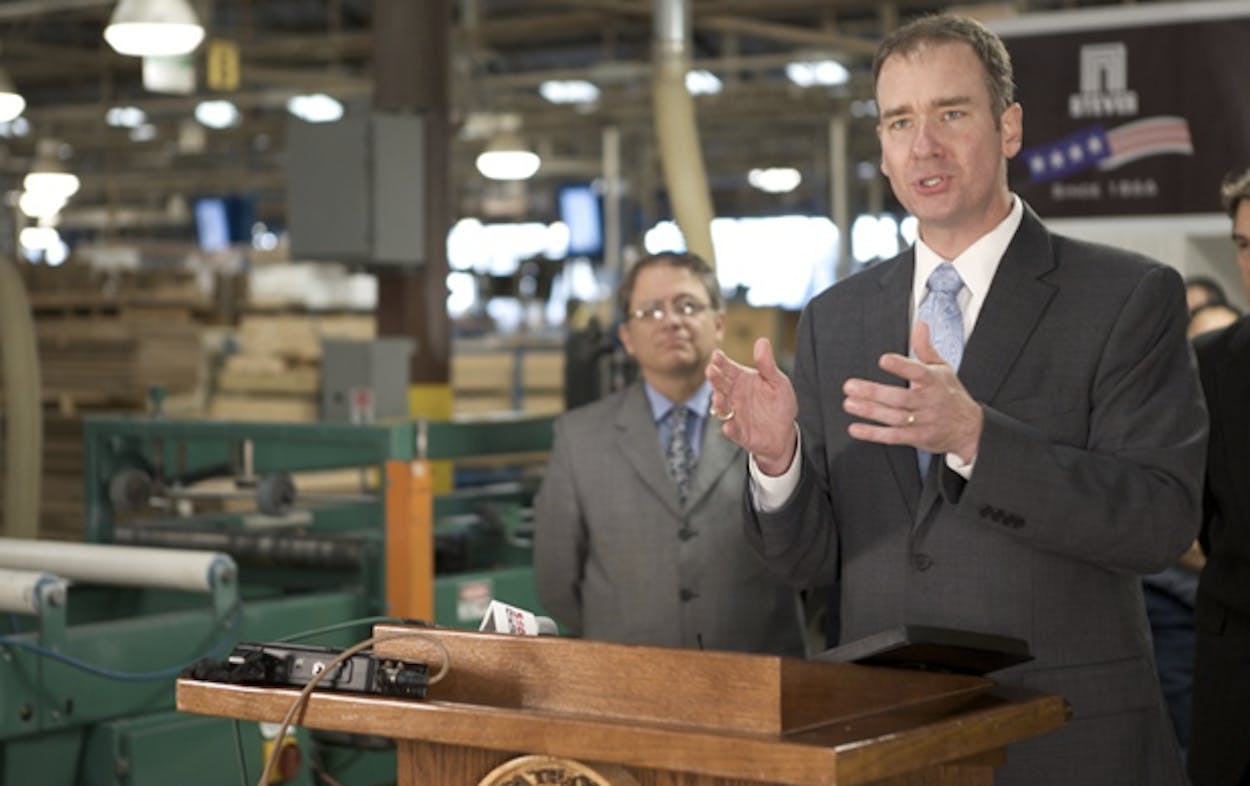State senator Kel Seliger, of Amarillo, is facing a primary challenge from former Ector County school board president Randy Rives, who cited Seliger’s D-plus “scorecard” grade from the conservative group Empower Texans/Texans for Fiscal Responsibility.
Days later, Michael Quinn Sullivan, president of Empower Texans, published an op-ed in the Midland Reporter-Telegram, reiterating the organization’s critique of Seliger’s record pointing to the senator’s support of the gross margins tax and “longevity pay” for state employees.
But instead of keeping quiet, or moving toward the right for the primary, Seliger decided to play offense against the acknowledged legislative powerbroker, publishing an op-ed of his own in the same paper. He called Texans for Fiscal Responsibility a “misnamed special interest group” with a “phony rating system {that} manipulates only a handful of votes out of thousands cast each session.”
In Seliger’s mind, Sullivan would merely replace property and other taxes “with a double-digit state sales tax (possibly higher than 20 percent in a down economy) on all purchases including medical care and housing.”
And as one example of a vote he’s not ashamed of that helped get him the bad grade, Seliger mentioned a 2009 bill on state health oversight of open water recreation areas.
“If you voted to prevent sickness from bacterial diarrhea, you got a bad ‘fiscal conservative’ rating,” Seliger wrote. “In other words, Sullivan supported bacterial diarrhea. I opposed it.”
While Texas Monthly’s Paul Burka lauded Seliger (“it’s always good to see someone take on a bully,” he wrote), Daniel Miller, a self-described “true conservative” who is running against representative Allen Ritter, of Nederland, in the Republican primary, wasn’t impressed.
“Your op-ed sounds like excuses that my kids make when they bring home a bad report card,” Miller tweeted at Seliger.
Seliger, who, as the chairman of the Senate Redistricing Committee, helped oversee the favorably Republican maps that are currently tied up in federal court, also put his conservative credentials on the line at a Texas Politics Forum on the campus of the University of Texas at Austin last week, surprising the audience by suggesting that the Texas Senate could be bigger.
The Senate has had 31 members for as long as it has existed, but Seliger said the chamber would better represent the state—especially its rural areas—with 37 or 35.
“If you asked most people what they thought about having more legislators in Austin, they’d probably say: ‘Oh, great. That’s a horrible idea,’” Seliger said at the forum. But on Sunday, the Austin American-Statesman editorial board suggested that the idea be considered. “When an unabashed proponent of small government proposes expanding it,” they wrote, “we should pay attention.”







